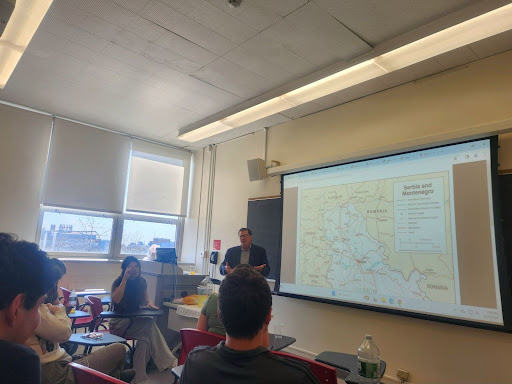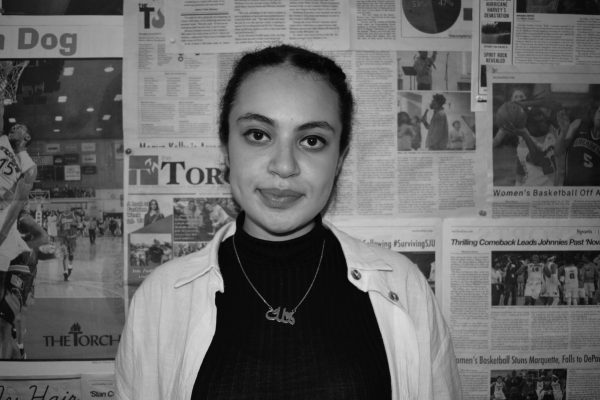
On April 15, the St. John’s University Balkan Club invited Professor Fred Cocozzelli, director of the Government & Politics program, to teach and facilitate “a discussion on the dynamics of the Balkans.” The event started at 2 p.m. and ran for about one hour in Marillac 433A.
Professor Cocozzelli offered an academic and Western perspective that shines a light on the region that has been in and out of conflict throughout the years. Despite regional wars, Cocozzelli highlights the people, landscape and culture that he has experienced throughout his life.
The audience was small, with about 10 students in attendance. However, attendees were vocal and represented many countries in the Balkans such as Croatia, Montenegro, Bulgaria and Romania.
Students gathered to learn more about their native Balkan nations and to hear about Cocozzelli’s professional and academic experience.
Cocozzelli spoke about his dissertation research in Kosovo, where he worked on post-conflict reconstruction of social welfare institutions. He spoke about his time helping with humanitarian assistance, such as delivering food and water to local families.
The group discussed several aspects of the Balkans in the past and present, also sharing regional legends, stories and histories.
“You would see houses burn at night,” said Cocozzelli, explaining that it was an attempt to force people out of their homes in some areas. He explained that it was a war tactic used in and beyond Yugoslavia.
One student mentioned that he notices some negative connotations being associated with the region, “Did that originate from the conflict?” he asked, referring to the Balkan Wars, which originated more than a century ago.
Professor Cocozzelli then explained the involvement of organized crime within the conflict, which has not only resulted in a negative perception of Balkans but of everywhere else in the world that has experienced similar conflicts.
“It changed a lot, it’s a very different place,” said Cocozzelli, “If you go to Croatia now, it’s beautiful, it’s really cool.”
This was one of the first events held by the Balkan Club, which hopes to offer opportunities for Balkan and non-Balkan students alike to learn more about the region and culture.
Sophia Feeney, co-president of the St. John’s Balkan Society, explained that she has spoken to Balkan students on campus who are homesick and would benefit from such a community that isn’t solely dedicated to one Balkan country.
“I think there is a very large Balkan community even though not a lot of people see it,” said Pavlina Stefanova, the second co-president of the organization.
“I think having a Balkan club unites everyone together because everyone has similar cultures, but there are some tiny differences. Having a club like this brings everyone together to learn about those differences.”
Feeney also highlighted that the club does not only exist to serve as a space for the Balkan community but also to teach people about “who we are and what we stand for.”
The focus on uniting the entire Balkan community is really important to both presidents, who want to see an organization that resembles the Arab Student Association that “brings people with similar cultures together to really just unite and have fun.”
The organization is planning on having a movie night and picnic for upcoming events.









